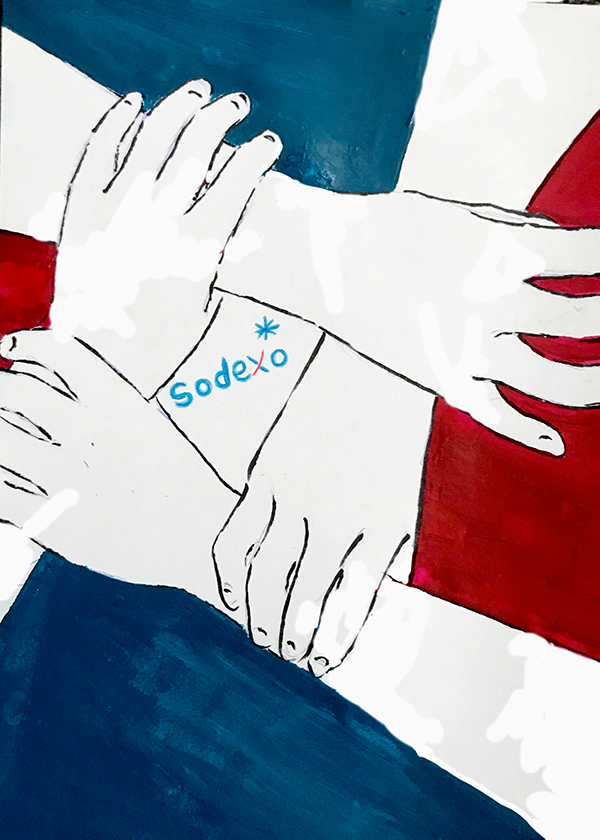Should Sodexo unionize? Yes: unionizing protects workers’ rights and guarantees local jobs
March 8, 2019
The UVM administration has not been inspiring much confidence in its employees lately.
The College of Arts and Sciences is facing a budget cut that is going to lay off 13 percent of non-tenure track professors and lecturers. And by all accounts, they “don’t give a shit” about doing it, according to assistant French professor Charles-Louis Morand Metivier.
The student body has witnessed large-scale opposition to the budget proposals that have greatly upset the faculty and their union, United Academics, which has taken visible action in organizing all over campus.
It’s hard to imagine that there would be such universal awareness among the student body without their work. It’s very easy to imagine a situation like this could strike the UVM Dining staff. They should unionize to either prevent it or lessen its effects.
To be clear, UVM Dining is a corporate branch of Sodexo, rather than UVM itself. But the University is responsible for the amount of money they choose to pay into their dining contract and they have some discretion on what that money is spent on.
The University, if it wished to, could look to decrease the size of its contract with Sodexo or change what it spends money on, which could affect any of its many employees.
UVM Dining employs people in 17 separate locations on campus and is a large employer of many working-class people in the Burlington area. In fact, 12.7 percent of Burlington’s overall population is employed in the dining services section of the economy, according to 2017 occupational data by DataUSA.
If you stopped students around campus and asked them who their favorite dining hall employee is, most people could give you an answer.
The UVM Dining staff is composed of kind, hardworking individuals contributing an invaluable service to the campus environment.
The dining staff is also incredibly diverse, with employees from many different backgrounds, including students. For many employees, the job is their primary source of income.
All of these individuals deserve some level of protection from an administration seemingly intent on reducing sections of the budget deemed unimportant by UVM’s $1.6 million “branding consultant.”
The administration has yet to determine that UVM Dining is unnecessary, and it is unlikely to change course in the near future. But it is not foreseeable that the “decreasing enrollment” in the University means that there is less need for dining services.
In that instance, a strong union could help protect workers from losing their jobs and serve students who want adequately staffed dining halls.
According to Sodexo’s company policy, the local branches of the company are free to unionize if they see fit. It is also illegal under both federal and Vermont state law for an employer to interfere with, discourage or fire employees attempting to unionize.
In 2013, when Sodexo tried to push many workers off their benefits as part of their nationwide company policy, UVM administration stepped in along with many other colleges around the state and invoked a clause in their contract that required university approval for any benefit changes, according to a September 2014 Burlington Free Press article.
But they only intervened after dining workers began to unionize to defend themselves against Sodexo’s new policy.
Performing a basic feat of dignity in the face of large public backlash and threat of unionization doesn’t mean that UVM has its workers’ best interests at heart. UVM Medical Center nurses had to strike, organized through their union, to get an adequate living wage raise.
Only a union composed of the workforce itself can truly advocate on their behalf next time they find themselves on the chopping block.







